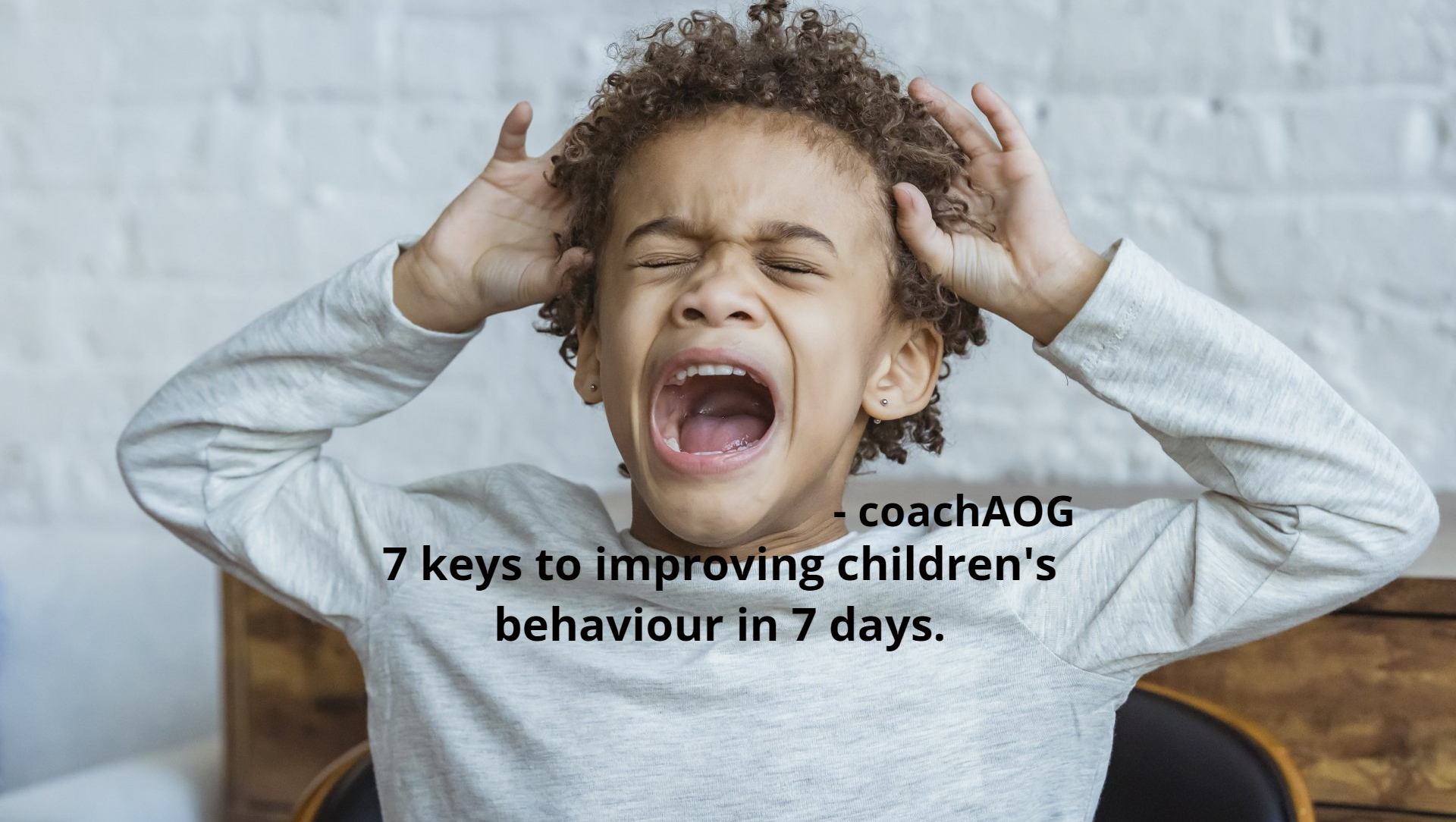7 keys to improving children's behaviour in 7 days
With patience and care, everything is possible with these tips to improve children's behaviour
This text contains affiliate links. If you buy something via a link, we get a small commission - of course without you paying more. If you are under the age of 18, you will need parental or legal guardian consent to purchase.
CONTENTS for 7 keys to improving children's behaviour in 7 days.
- Do not react negatively
- Be positive
- Talk to your children
- Pay attention to their emotions first
- Be consistent
- Be flexible
- Always make it plain to them what you expect of them
Improve children's behaviour
Many parents are continually complaining about their children's behaviour, oblivious to the fact that the first and most crucial step is to examine their own. When a father or a mother reacts negatively to their children's undesirable behaviour, they are just fueling that behaviour by offering attention that is inappropriate for youngsters. The keys to changing children's behaviour include calmness, patience, tenderness, and persistence. These 7 strategies to improve children's behaviour in 7 days should not be overlooked.
These are the keys to improving your child's behaviour
1. Do not react negatively
If your child throws himself on the floor in the midst of the store during a tantrum, do not overreact or become enraged; what good does it do to be irritated? The best thing you can do is remain cool and not react to that desire for negative attention. «We're not going to buy those cookies, Miguel.» "Look, do you like that book?" she asks, drawing attention away from her work. You are welcome to look at it till we have finished our shopping. If the behaviour continues, establish consequences: «Miguel, you already know we're not going to buy those cookies; if you don't want to read the story, you can choose another activity to wait for; however, if you keep crying, we won't be able to go to the park after the purchase because we'll be late."
2. Be positive.
You will be disappointed if you expect your children to fight or something terrible to happen every morning. Self-fulfilling prophecies don't just happen; they happen all the time. You will attract all of the nice things you want to happen if you think about them every morning. This happens with children's labelling as well; instead of focusing on their bad behaviour, focus on everything good they do; you'll be shocked!
3. Talk to your children.
Things must be explained to your children, and you must communicate with them. You can say something like, "Hurry up, we're going to be late for the doctor, we have to go in five minutes," instead of getting frustrated if they take a long time to get ready. If you provide facts to your children, they will recognise that their actions matter, they will feel more responsible, and they will respond better to your demands.
4. Pay attention to their emotions first.
Before you chastise your children for their behaviour when something terrible occurs, you must consider their sentiments and understand what occurred and why. Once you've established this, work with your child to establish a clear and agreed-upon consequence... this way, you'll be able to see how it's affecting him, and he'll feel the responsibility to look for consequences and follow them if necessary (if, for example, he hits her sister, knowing why it happened, how she feels and looking for an appropriate consequence such as not watching television before dinner).
5. Be consistent.
Allowing your mood to be the one to reprimand your children is not a good idea. Your children will be puzzled if one day you do not allow your children to jump on the bed because it is not appropriate, but the next day you are so exhausted that you do not care and do not want to dispute. Set clear rules with consequences and stick to them, regardless of your mood. You will be grateful to your children.
6. Be flexible.
Parents are frequently obliged to be flexible in the face of regulations, and little happens as a result. Why not, if we're at Grandma's place and it's not time to watch TV but it's a relaxing moment? Why not let your child wear a blue sweater instead of the green sweater in the morning? You must know how to pick your battles and be adaptable in each situation.
7. Always make it plain to them what you expect of them.
Children need to know what is expected of them at all times, so don't be afraid to construct responsibility or behaviour charts if necessary. Children must understand that if they do not clean up their rooms, they will not be allowed to jump on the couch. However, you must make it obvious to them which behaviours are unacceptable, always with calm, patience, and respect.
Final thoughts on saving money tips
Your kid is special and amazing, be more positive with them and they will reciprocate that same behaviour.
Make sure you like and comment below so I know your thoughts about this article and if it is helpful at all. I will really appreciate it if you can share this article too.
With Love.
coachAOG
You can listen to coachAOG Excuse To Succeed Podcast Here. You will love it.
Thanks for reading this post today. Remember to comment below and share your thoughts.
Ayo Ogunrekun
PS:And remember what #coachAOG always say, make sure to "have an #ExcuseToSucceed."









































































































